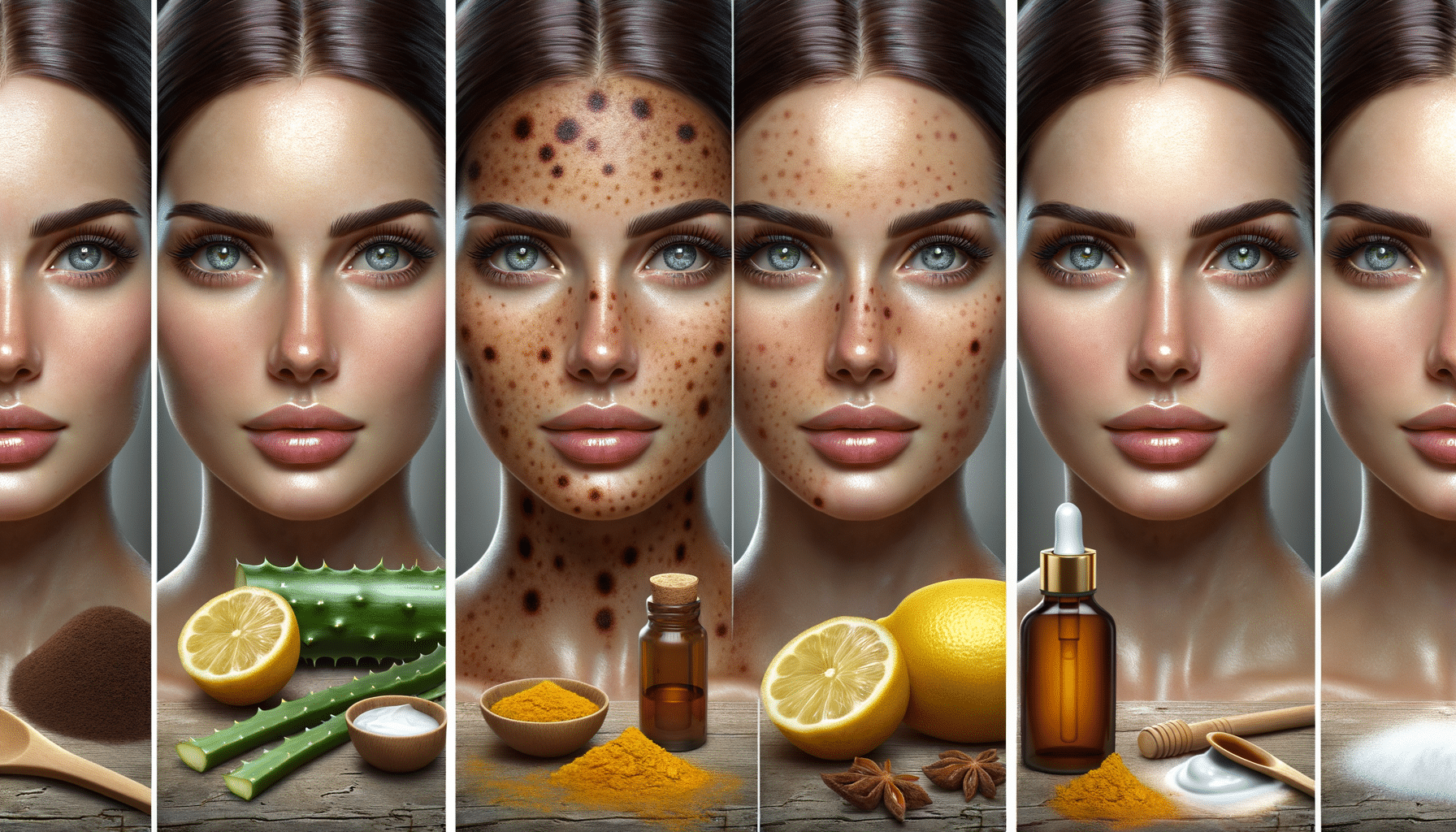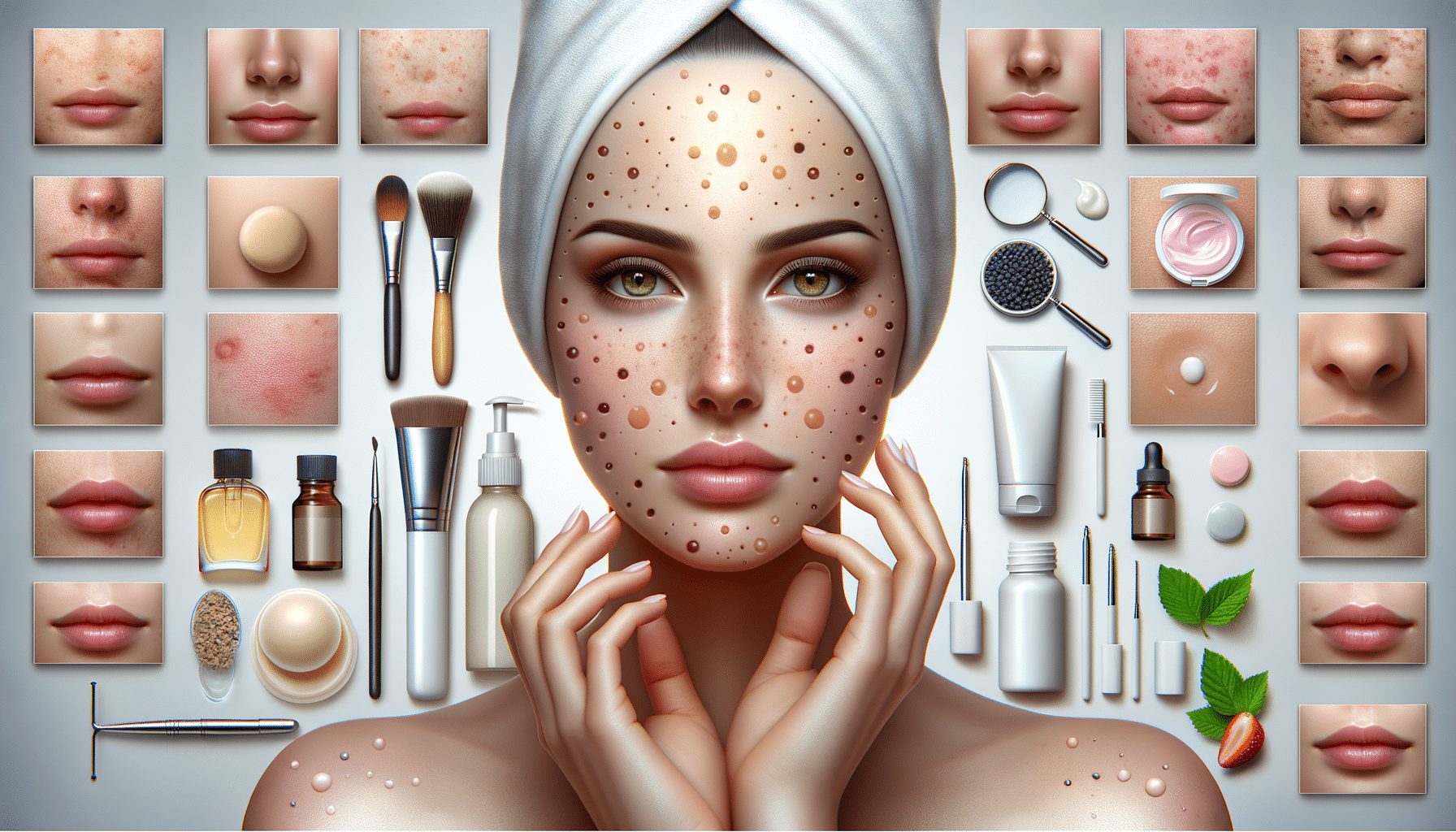
How to Remove Dark Spots from Face: Complete Guide
Understanding Dark Spots: Causes and Types
Dark spots, often referred to as hyperpigmentation, are common skin concerns that many individuals face. These spots can appear due to various reasons, including sun exposure, hormonal changes, and aging. Understanding the underlying causes is crucial in addressing and treating these spots effectively.
Several factors contribute to the development of dark spots:
- Sun Exposure: Prolonged exposure to UV rays can lead to an overproduction of melanin, causing dark spots.
- Hormonal Changes: Conditions like pregnancy or the use of contraceptives can trigger melasma, a type of hyperpigmentation.
- Aging: As skin ages, it becomes more susceptible to dark spots due to a decrease in cell turnover.
- Post-Inflammatory Hyperpigmentation: This occurs after an injury or inflammation to the skin, such as acne.
Identifying the type of dark spot is essential for selecting the right treatment method. Consulting a dermatologist can provide personalized insights into your specific skin condition.
Topical Treatments: Creams and Serums
Topical treatments are a popular choice for those looking to reduce the appearance of dark spots. These products often contain active ingredients that target pigmentation and promote skin renewal. When selecting a product, consider the following ingredients:
- Vitamin C: Known for its brightening properties, Vitamin C can help lighten dark spots and improve skin tone.
- Retinoids: These derivatives of Vitamin A can accelerate cell turnover and reduce pigmentation.
- Hydroquinone: A commonly used skin-lightening agent that can effectively reduce dark spots.
- Niacinamide: This form of Vitamin B3 can improve skin texture and reduce pigmentation.
It’s important to use these products consistently and as directed to see noticeable results. Additionally, combining topical treatments with sun protection can enhance their effectiveness and prevent further pigmentation.
Natural Remedies: A Gentle Approach
For those who prefer a more natural approach, several home remedies can help lighten dark spots. While these remedies may take longer to show results, they are gentle on the skin and can be a good option for those with sensitive skin.
Here are some natural ingredients that are known to help with dark spots:
- Lemon Juice: The citric acid in lemon juice acts as a natural bleaching agent and can lighten dark spots.
- Aloe Vera: Known for its soothing properties, aloe vera can help reduce pigmentation and promote healing.
- Green Tea Extract: Rich in antioxidants, green tea can help reduce inflammation and lighten dark spots over time.
- Turmeric: This spice contains curcumin, which has anti-inflammatory and skin-lightening properties.
While these remedies are generally safe, it’s advisable to do a patch test before applying them to larger areas to ensure there is no adverse reaction.
Professional Treatments: Dermatological Solutions
For more persistent dark spots, professional treatments may be necessary. Dermatologists offer a range of procedures that can effectively target and reduce pigmentation.
Some common professional treatments include:
- Chemical Peels: These treatments involve applying a chemical solution to the skin, which exfoliates and promotes the growth of new, evenly pigmented skin.
- Laser Therapy: Lasers can target melanin in the skin, breaking down dark spots and promoting an even skin tone.
- Microdermabrasion: This procedure exfoliates the skin and can help reduce the appearance of dark spots over time.
- Intense Pulsed Light (IPL): IPL uses light energy to target pigmented cells, reducing the appearance of dark spots.
Professional treatments can be more costly, but they often provide faster and more noticeable results compared to topical or natural remedies. Consulting with a dermatologist can help determine the most suitable treatment for your skin type and condition.
Preventing Dark Spots: Long-Term Care
Prevention is key when it comes to managing dark spots. By adopting a proactive skincare routine, you can minimize the risk of developing new spots and maintain a more even complexion.
Consider the following preventive measures:
- Sun Protection: Use a broad-spectrum sunscreen with at least SPF 30 daily, even on cloudy days, to protect against UV damage.
- Hydration: Keep your skin well-moisturized to maintain its barrier function and prevent damage.
- Healthy Diet: A diet rich in antioxidants can help protect the skin from oxidative stress and promote a healthy glow.
- Avoid Picking: Refrain from picking at acne or other skin blemishes to prevent post-inflammatory hyperpigmentation.
By incorporating these habits into your daily routine, you can effectively reduce the likelihood of dark spots and enjoy healthier, more radiant skin.


